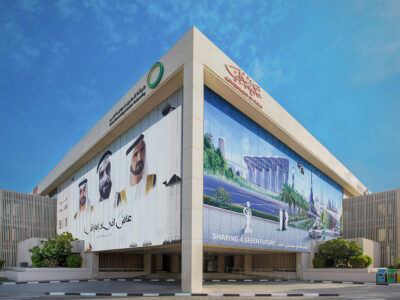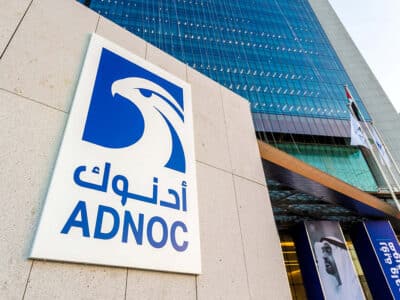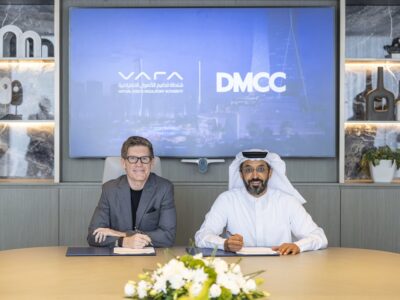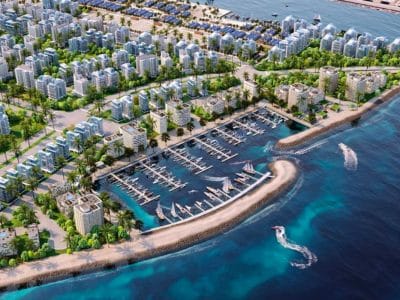Emcor FS CEO Christian Roberts on how Dubai’s FM business model has emerged from a 12 month period that has seen significant change and market maturity, and how technology is playing a vital role in shaping service provision now, and in the future.
Ayear on from fmME’s last interview with Emcor Facilities Services (EFS) CEO Christian Roberts, and Dubai’s facilities mangers preside over a much altered real estate landscape. Viewed and used as a bolt-on service and maintenance provision by building developers and owners alike during the good times, the shock of the bad times forced every element of the real estate sector to revaluate its business model. Not only that, the concept of a building as an asset, and one which needs to be managed and maintained to achieve ROI and efficiently support its users, is now on the uptake.
“Dubai reacts quickly,” says Roberts. “It identified its vision to become a multi-national trade, commerce and tourism hub decades ago, way before any other emirate or Gulf country. During the boom years though there was a lack of understanding of what total FM is and the value it can add – whether that’s to a residential development, tower or mega project.”
However, when the contraction hit and liquidity dried up developers and owners soon realised they had to make their projects work for them, continues Roberts. “This is when the value of integrated FM services began to be recognised and was the catalyst for sector maturity. Also, as in any economic downturn, skill sets, staffing levels, costings and productivity suddenly became important to every business, FM being no exception – so a lot of deadwood has been stripped away leaving leaner operators providing enhanced FM services. We now see a degree of market maturity in one year as opposed to three, which is the accepted norm.”
New model army
However, some Emcor clients looked at separating services to cut costs when the contraction hit. Faced with losing clients in what is a cash business, Emcor reviewed its business model and made the necessary changes to both cushion the financial impact on clients and to retain business. “We had to be flexible in a number of ways. For example, payment schedules were extended taking the pressure off clients. It’s obviously better to maintain your client base on a lesser return in a restricted climate rather than lose it and have to look to new pastures.”
Service provision was also scrutinised. If a 24/7 manned service was in operation, that service could be scaled back to a link to an enhanced centralised call centre, therefore saving money yet continuing a service and in some cases increasing the service to our clients.”
Consolidation also became a priority in a number of ways, in both external and internal operations. The sheer number of unfinished developments meant no financial return through rentals could be derived, starving developers of much needed cash-flow.
“We sat down with our developer clients and agreed to focus on finishing one building, occupying it and creating a community in and around its facilities – through residential sports and social clubs for example. We could then add credibility to our client in terms of showcasing building and environmental quality to potential end-users in other unfinished projects, offering it up as a fully operational model.”
From an internal aspect it also became a priority to decentralise some shared services on core functions. “This has helped us reduce overall costs and ensure we remain competitive in the market, and enabled us to maintain strong cash flow and a positive balance sheet in the Middle East. This, in turn, allows us to seek opportunities outside the UAE to strengthen our regional position. We have invested substantial sums into KSA, Oman and Jordan this year, enabling us to hit growth targets.”
Technology is playing a vital role in shaping the total FM provision today and for the future. Read the case study and find out how Emcor is adding real value to its clients through software and IBMS solutions.
Where?
Projects across the Middle East where Emcor has operations and maintenance tasks in its contract, with the obligation to implement and operate computerised maintenance management systems, develop electronic document libraries and implement Integrated Building Management Systems (IBMS).
What?
Emcor is using the MAXIMO application as a computerised maintenance management system. The JOOMLA application has been used to develop a document library, while the IBMS used is the GE Fanuc Cimplicity SCADA application.
How?
MAXIMO:
To ensure the project’s assets are fully utilised at the lowest possible cost while benefiting every phase of a building’s lifecycle, the computerised maintenance management system MAXIMO has been implemented.
Using the MAXIMO work flow module has enabled the integration of operational and strategic facility management – all of the activities associated with administrative, technical, financial, procurement and infrastructural FM tasks when the facility is operational, as well as the strategic processes for facilities planning and management.
The MAXIMO application supports 50 users to include facilities administrators, facilities coordinators, operations manager, store keeper, procurement manager, finance manager, facilities manager and systems manager. MAXIMO operations are based on 11 different modules that are integrated through automated process flow to provide best practice computerised maintenance and management systems.
JOOMLA:
An Electronic Document Library to support the facilities management team deployed on remote sites has been developed. The library is published on Emcor’s intranet through a virtual private network. This helps the team to access all operations and maintenance manuals and as-built drawings. The document library is developed using the JOOMLA application that serves as a dynamic portal engine and content management system.
Integrated Building Management Systems
As part of Emcor’s responsibility to deliver an integrated building management system, the GE Fanuc Cimplicity application has been implemented to integrate building management systems into a single interface.
Implementation of IBMS has enhanced the efficiency of all electrical, mechanical, HVAC, CCTV, access control, irrigation systems, lighting control etc. The system is being used as an advanced facilities management tool to manage, maintain, and enhance the operation of all facilities in real-time. This interactive system enables the exchange of information between the relevant parties, including other management systems, to proactively manage project-based issues from a central operational command facility. It can also utilise both visual and electronic information to ensure effective solutions are given to any facilities management issues as and when it arises.
Data from the various facilities, operational activities and systems are combined into a central knowledge database system, and the operational requirement profiles are synchronised with each other. The result is that intelligent maintenance provides for continual, cost effective improvements in day-to-day facilities operations and management.








